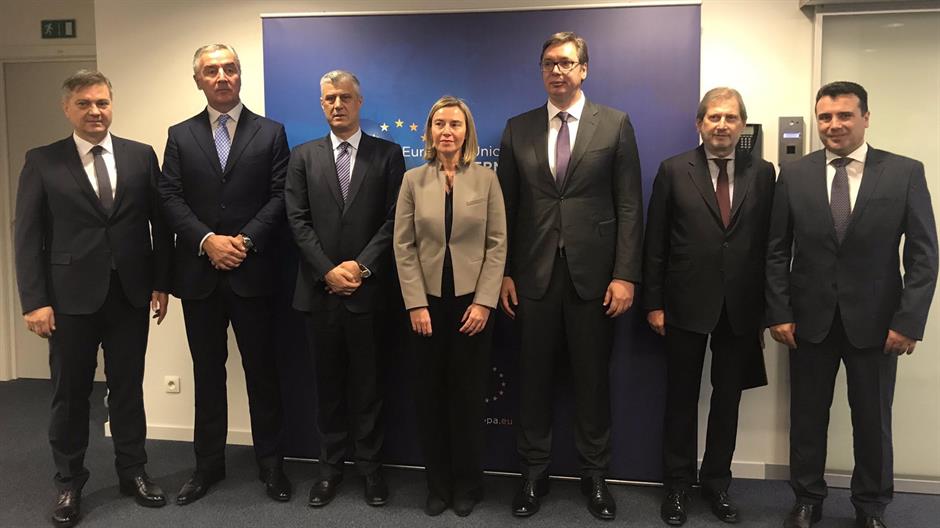EU: Support for Skopje-Athens agreement and Belgrade-Pristina dialogue

European Union (EU) High Representative Federica Mogherini said on Wednesday the Western Balkans leaders were united in supporting the Skopje – Athens agreement on a new name for the former Yugoslav Republic of Macedonia and the Belgrade – Pristina dialogue on normalisation of relations, the Beta news agency reported.
Oglas
Mogherini held an informal meeting with all six leaders from the Western Balkan countries in Brussels and insisted they should work together more than ever on their common goal to join the bloc, to consolidate the peace and security in the region and to invest in further regional cooperation, for the benefit of all the people in the region, an EU statement said.
It added the Western Balkans leaders committed themselves to further integration with the EU in a spirit of good neighbourly relations and reconciliation.
https://twitter.com/MajaEUspox/status/1075419535556128768
Oglas
They also pledged to avoid provocations, i.e., "actions and statements that are not conducive to the overall interests and strategic objectives of the region."
The meeting was held amid deteriorating relations between Belgrade and Pristina and the long break in the dialogue.
In the meantime, Kosovo refused to revoke the decision on the 100 percent import duties on goods from Serbia and Bosnia from early November in spite of many demands from the EU and Central European Free Trade Agreement (CEFTA) countries to lift them.
Also, Pristina started the transformation of its Security Forces into a military despite being warned by NATO that the time was not right for the move.
Oglas
On the other hand, the US and the UK supported the transformation arguing Kosovo had that right since it was a sovereign state.
Belgarde has strongly opposed both moves, saying the tariffs violated the CEFTA deals and prevented the free flow of goods, and that Kosovo military was a severe threat to the local Serbs there.
Kakvo je tvoje mišljenje o ovome?
Učestvuj u diskusiji ili pročitaj komentare
Oglas
Kakvo je tvoje mišljenje o ovome?
Učestvuj u diskusiji ili pročitaj komentare
Oglas





 Srbija
Srbija
 Hrvatska
Hrvatska
 Slovenija
Slovenija



























































